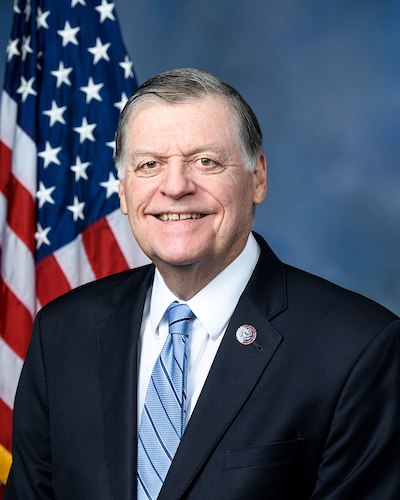
- Details
- By Tom Cole
Guest Opinion. The solvency of Social Security has reached a turning point, and millions of Americans who have paid into this program throughout their working lives are at risk of not receiving the money they deserve. The reality of the challenge facing Social Security is that without reforms, these funds will dry up. Congress must find solutions to save this program rather than sacrifice the hard-earned retirement of working Americans.
Since 2020, the costs of the Old-Age and Survivors Insurance (OASI) fund, one of two trust funds that comprise Social Security, have been higher than the fund’s income and will be for the foreseeable future. This is a result of the number of beneficiaries growing significantly faster than the number of workers paying into Social Security. While OASI provided benefits to 50 million retired workers and their dependents and 6 million survivors of deceased workers in 2021, unfortunately, the fund’s reserves decreased from $2.812 trillion in 2020 to $2.753 trillion in 2021.

Due to the imbalance between income and costs, Social Security’s Board of Trustees expects OASI’s depletion by 2034, resulting in beneficiaries receiving an immediate and detrimental 23 percent cut in benefits because Social Security will only be able to pay around 77 percent of scheduled benefits. To put that in perspective, that would be like the average beneficiary’s 2023 monthly payment being reduced from $1,827 to $1,407, or $420 less per month.
The topic of Social Security is certainly a sensitive issue, and reasonably so as it has to do with the livelihoods of millions of American seniors. However, lawmakers have a duty to the American people to find a solution. We cannot afford to sweep this issue under the rug any longer. Rather than risk breaking the promise made to generations who have paid or will pay into the system, this Congress I will reintroduce legislation that would result in commonsense solutions to save Social Security for future generations of retirees.
If enacted into law, the Bipartisan Social Security Commission Act would create an independent, bipartisan commission of 13 members from both the executive and legislative branches appointed by leaders in both parties. Any recommendation by the commission must reach a 9 out of 13 vote threshold. The commission’s findings and recommendations to save Social Security would then be adopted or rejected by a vote in Congress. It is long overdue for Congress to finally have a serious and civil discussion about how we preserve and maintain this program.
Since its establishment in 1935, Social Security has been a critical tool to lift seniors out of poverty, and it is also an earned benefit that all Americans pay into and rely upon for benefits in old age. I am committed to working with my colleagues in Congress on both sides of the aisle to ensure the program's long-term survival.
Rep. Tom Cole (R-OK) represents Oklahoma's 4th congressional district. He is a tribal citizen of the Chickasaw Nation.
Help us defend tribal sovereignty.
At Native News Online, our mission is rooted in telling the stories that strengthen sovereignty and uplift Indigenous voices — not just at year’s end, but every single day.
Because of your generosity last year, we were able to keep our reporters on the ground in tribal communities, at national gatherings and in the halls of Congress — covering the issues that matter most to Indian Country: sovereignty, culture, education, health and economic opportunity.
That support sustained us through a tough year in 2025. Now, as we look to the year ahead, we need your help right now to ensure warrior journalism remains strong — reporting that defends tribal sovereignty, amplifies Native truth, and holds power accountable.
 The stakes couldn't be higher. Your support keeps Native voices heard, Native stories told and Native sovereignty defended.
The stakes couldn't be higher. Your support keeps Native voices heard, Native stories told and Native sovereignty defended.
Stand with Warrior Journalism today.
Levi Rickert (Potawatomi), Editor & Publisher
